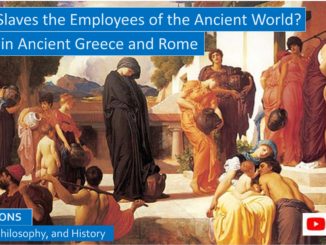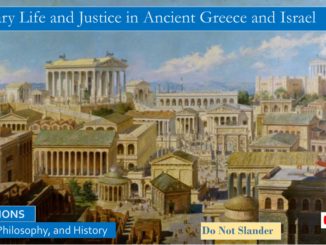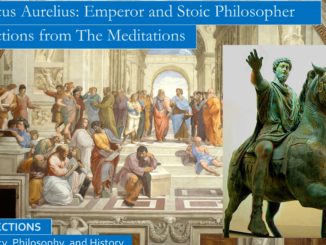
Slaves in Ancient Greece and Rome, Blog 2
Slavery in the ancient world was not based solely on race like in the Confederate South. Slavery in the ancient world happened to you when your city was conquered or when you were kidnapped by pirates. When a city was defeated the women and children were often enslaved, the men were often slaughtered, though sometimes they were enslaved to work in the mines. Or if you could not pay your bills you could be sold into slavery. […]



